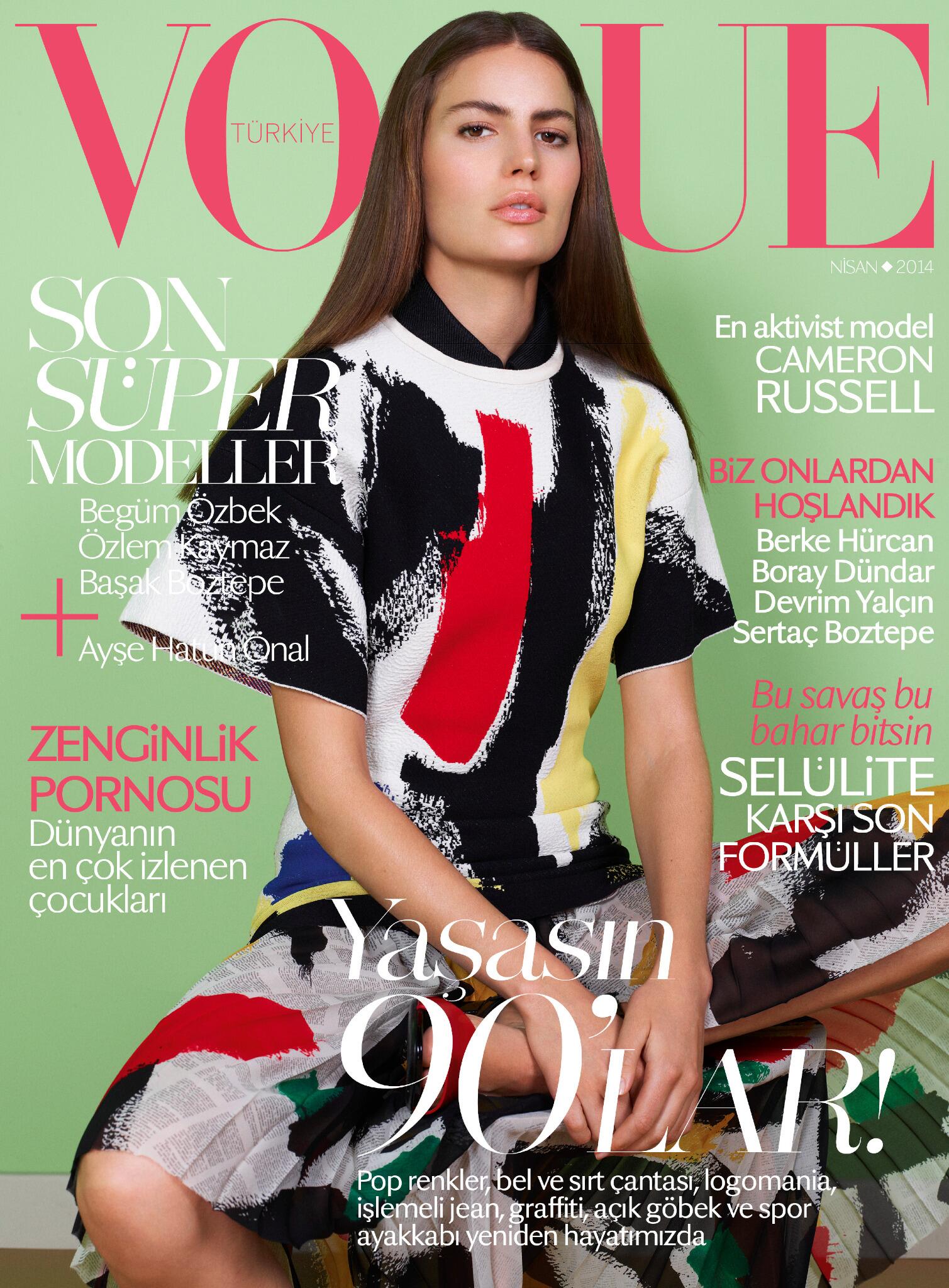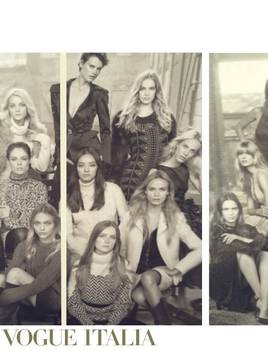-
The F/W 2026.27 Show Schedules...
New York Fashion Week (February 11th - February 16th) London Fashion Week (February 19th - February 23rd) Milan Fashion Week (February 24th - March 2nd) Paris Fashion Week (March 2nd - March 10th)
You are using an out of date browser. It may not display this or other websites correctly.
You should upgrade or use an alternative browser.
You should upgrade or use an alternative browser.
Cameron Russell
- Thread starter zoelemon
- Start date
nudeunderwater
Active Member
- Joined
- Sep 24, 2012
- Messages
- 6,749
- Reaction score
- 22
FASHIONOGRAPHY
Member
- Joined
- Feb 1, 2010
- Messages
- 586
- Reaction score
- 1
She is the epitome of the kind of girl I want in front of my lens.
MartiniKiss
Active Member
- Joined
- May 27, 2010
- Messages
- 36,766
- Reaction score
- 54
FashionDream
Member
- Joined
- Sep 29, 2010
- Messages
- 338
- Reaction score
- 0
MartiniKiss
Active Member
- Joined
- May 27, 2010
- Messages
- 36,766
- Reaction score
- 54
Nymphaea
Well-Known Member
- Joined
- Oct 30, 2012
- Messages
- 6,196
- Reaction score
- 695
Interview The Edit
net-a-porterIt may seem strange for a Victoria’s Secret model to claim that looks aren’t everything, but for CAMERON RUSSELL, challenging perceptions is the norm. She talks about beauty ideals and female equality with AMANDA DE CADENET.
There is more to Cameron Russell than meets the eye. She may have worked with photographic greats including Steven Meisel and Craig McDean, walked the Victoria’s Secret runway and fronted campaigns for Prada and Ralph Lauren, but these were apparently the result – by her own modest admission – of simply having won “the genetic lottery”.
The 26-year-old model’s outspokenness on perceived beauty ideals was the impetus behind her 2012 TED talk – usually an opportunity granted to award-winning scientists or high-powered CEOs – entitled, Looks aren’t everything. Believe me, I’m a model. The talk challenged the smoke and mirrors of the fashion industry, demanding more honesty around its imagery, greater protection for young members (Russell began her modeling career aged 16) and crucially, society’s obsession with beauty and the free pass it grants to those who possess it.
Over 6,000,000 views later, Russell’s speech is now firmly placed in TED’s top 25 talks. But this was no singular party trick. With a degree in economics and political science from Colombia University, Russell is the founder of Space-Made, an initiative that gives grassroots creators a platform on which to speak and work as experts and problem solvers. Building on the unexpectedly enthusiastic reaction to her TED talk from the media, Russell also set up Interrupt, a webzine encouraging women to take action against inequality.
Here, Amanda de Cadenet, founder and presenter of the interview series The Conversation – and whose daughter, Atlanta, is also a model – talks to her friend Russell about beauty and running her career on her own terms.
Amanda de Cadenet: When you became a model, what was it like to be judged solely on your looks?
Cameron Russell: A week after my agency signed me, I was backstage at Calvin Klein, getting my nails, hair and makeup done for around six hours. I had never put on makeup before, so it was like an out-of-body experience.
AdC: Were you prepared for it, in any way?
CR: My mother [Robin Chase, the founder of Zipcar and a fellow TED talk orator] is a total feminist. She never talked about beauty at home, so I never thought about being pretty.
AdC: Ever since my daughter, Atlanta, was little, people would say, ‘She’s so beautiful.’ And I would always reply, ‘She’s so smart.’ Even so, she is now a model, too. What would you say to a young girl considering modeling?
CR: I would advise them to get a good education and feel confident that they have another career option. Without an alternative, the pressure to succeed increases. I try to parent young models and tell
them that if there are things they don’t like, it’s OK to say no, even if it does burn some bridges. They mustn’t feel guilty about standing up for their beliefs.
AdC: How did you end up presenting your 2012 TED talk?
CR: I had gone to watch my mother do her talk and I was asked to give one. My first thought was: are the only ‘ideas worth spreading’ all from white men or people who have won the science prize? So I planned to give a talk and be really blunt about why I’m here, and to do a really good job at telling a story. But, of course, everybody was sidetracked by the fact that I’m a model.
AdC: I think you achieved your objectives and then some.
R: There was a wonderful TED talk this year by a model, Geena Rocero, who came out [on stage] as transgender. If my talk had done anything to lay the ground for that moment, then it was worth it.
AdC: Diversity is such a big issue. The fact that we are still fighting for more than one woman to sit at the table in so many scenarios in the world is nuts.
CR: I agree, so after my TED talk, I started Interrupt, my webzine. I had so many press requests that I couldn’t fulfill, which inspired the idea for a magazine that allowed people misrepresented by the media to have their say. We run stories such as an account by a kid who just exited the foster-care system, or a transgender woman going bra shopping.
AdC: Why are these stories so important for you to tell?
CR: I wasn’t exposed to mass media as a kid. We had no television at home; my mom read to us. So when I started modeling, I noticed the power of the media and how, whether I’m talking to a senator or a 13-year-old, when they hear that I’m a model, they want to talk to me. That led me to think about the underrepresentation of women or people of color in the Senate, and how part of the remedy to that could be giving them a voice by showcasing their stories in powerful and viral ways within mass media.
AdC: Do you feel you have successfully used the platform of modeling to highlight these particular stories?
CR: There have definitely been a couple of stories that worked well. I always feel uncomfortable putting myself in the conversation – and I’m still working out how to strike a balance.
AdC: What do you think are the biggest obstacles that women still face today?
CR: I feel that the whole body-image conversation is really about sexism and racism and all these much deeper issues.
AdC: Would you ever quit modeling for ethical reasons?
CR: I don’t feel that modeling is particularly unethical, especially in comparison to working elsewhere. The long-term solution is for women to speak up and change all of their working environments, whether they are a waitress, a sex worker or a model.
AdC: How do you feel when you see an image of yourself that has been extremely retouched?
CR: There is a myth outside of the fashion industry that every picture [you see in a magazine] has been retouched. But if you have a personal stylist and a makeup artist and you are 16 years old, then of course you are going to look incredible. If, on top of that, you have been retouched too much, you will just end up looking weird. Ultimately, I just see [retouching] as a part of the current preoccupation with the manipulation of beauty.
I have always believed that if you have a voice, it is your social responsibility to use it for the benefit of others. That is what Cameron is doing so well: she is using her highly visible platform as a model to start a much-needed and valuable conversation, in an eloquent and passionate way. We need as many voices as possible to highlight the misrepresentation of women – every time another voice is heard we are moving in the direction we need to be, which is to ensure women and girls are given their rightful place at the table.”
petit fours
Active Member
- Joined
- Mar 29, 2010
- Messages
- 3,342
- Reaction score
- 7
Beauty combined with brain = Perfection
MartiniKiss
Active Member
- Joined
- May 27, 2010
- Messages
- 36,766
- Reaction score
- 54
MartiniKiss
Active Member
- Joined
- May 27, 2010
- Messages
- 36,766
- Reaction score
- 54
Similar Threads
Users who are viewing this thread
Total: 1 (members: 0, guests: 1)
New Posts
-
-
-
S/S 2026 Campaign Wishlist, Model Casting Discussion, Guesses & Reactions (10 Viewers)
- Latest: BalkaniStaCouture
-
-



































































































































